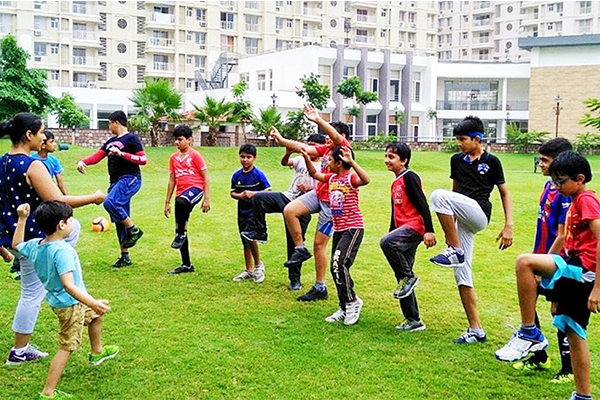
Raghav and Anjali live with their 2 children in Delhi. Both being working parents, they are concerned about their about child’s secure future. Their children come home after school to maids and spend a lot of time watching TV and playing on the tab. They are concerned about their son who just turned 10. He is putting on weight and his grades in school are deteriorating.
Over 30% of children in India spend over six hours a day staring at screens.*It is hence not surprising that 57% of Indian parents worry about excess screen time their children are exposed to.* What is alarming is that the average time spent by children in front of the screen in India is higher than that of other countries like China, the USA, Poland and others.*

This overindulgence is hurting the growth and development of kids in many ways.
Obesity
Children, who don’t have an active life, engaging in physical games, tend to grow up as overweight and obese adults. Obesity is one of the main reasons for several lifestyle ailments like cardiac diseases, BP, diabetes, and others.
Sleep Problems
If your child has a habit of watching TV or mobiles, as a way to wind down before going to bed, then it could lead to sleep issues. The light emitted from screens interferes with regular sleep cycles, causing insomnia and disturbed sleep.
Behavioural Issues and Social Withdrawal
Toddlers and elementary school-age children who watch TV, mobiles or tablets for more than two hours a day are likely to show emotional and social problems. Excessive screen time can make kids aggressive, violent and attention-seeking.
Academic Performance
Passive viewing of videos does not involve active engagement of mind and leads to dull minds. Kids who spend most of their time at home, watching screens, have a harder time concentrating at school. Hence, incremental time spent on screen by kids negatively affects their academic performance.
Mental Health Issues
Students who spend more time on screens are likely to develop mental health issues like depression, isolation and even suicide symptoms. On the other hand, students, who spend more time on in-person social interactions like taking part in physical games, engaging in craft activities, pursue hobbies, reading and other social events are less likely to develop mental health problems.
Did you know that Screens affect Your Relationship with Your Child?
Conversations about too much screen time are usually focussed on children. However, parents need to realize that the time you spend on screens also impacts your relationship with your child. Children feel neglected and unimportant when you look at your smartphone during meals or while playing together. They also ape the behaviour of their parents. Hence, it’s important to set the right example when it comes to limiting screen time and giving importance to other activities like socializing, playing sports, reading, etc.
Read how Raghav and Anjali resolved this issue how Raghav and Anjali resolved this issue.
Ashiana, Ashiana Housing build homes. Homes surrounded by vast green spaces and fresh breeze. Homes cocooned in secured gated complexes. Homes where futures are forged and there are opportunities to grow. And Homes in environments brimming with healthy activity, trust and respect. At heart, we build communities with care.
Other posts by Ashiana
Join 1000+ of fellow readers. Get expert real estate knowledge straight to your inbox absolutely free. Just enter your email address below.